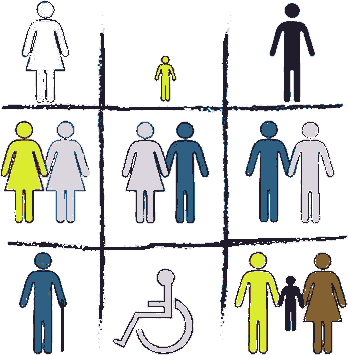The prohibition of discrimination in employment is one of the basic principles of labor law. According to the Labor Code, employees should be treated equally in terms of establishing and terminating an employment relationship, employment conditions, promotion and access to training in order to raise professional qualifications, in particular regardless of gender, age, disability, race, religion, nationality, political beliefs , trade union membership, ethnicity, religion, sexual orientation, and regardless of employment for a definite or indefinite period or for full-time or part-time employment.

Equal treatment in employment means non-discrimination in any way, directly or indirectly, for the reasons set out above.
Direct discrimination exists when an employee has been, is or could be treated less favorably than other employees for one or more of the reasons set out above.
Indirect discrimination exists when, as a result of a seemingly neutral provision, criterion used or action taken, there are disproportions in terms of employment to the detriment of all or a significant number of employees belonging to the group distinguished for one or more of the reasons referred to above, if these disproportions cannot be justified by other objective reasons.
Discrimination is also:
- action consisting in encouraging another person to violate the principle of equal treatment in employment,
- conduct whose purpose or effect is violation of the dignity or humiliation or humiliation of an employee (harassment).
A breach of the principle of equal treatment in employment is deemed to be the employer’s differentiation of the employee’s situation for one or more of the reasons stated at the beginning, which results in, in particular:
- refusal to enter into or terminate an employment relationship,
- unfavorable development of remuneration for work or other conditions of employment or omission when being promoted or granting other benefits related to work,
- omission when selecting for participation in training raising professional qualifications – unless the employer proves that he was guided by objective reasons.
In addition, employees are entitled to equal pay for equal work or work of equal value.
The remuneration in question covers all components of the remuneration, irrespective of their name and nature, as well as other work-related benefits granted to employees in cash or in a form other than cash.
Works of equal value are works whose performance requires comparable professional qualifications from employees, confirmed by documents provided for in separate regulations or professional practice and experience, as well as comparable responsibility and effort.

